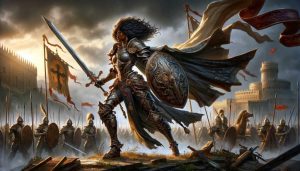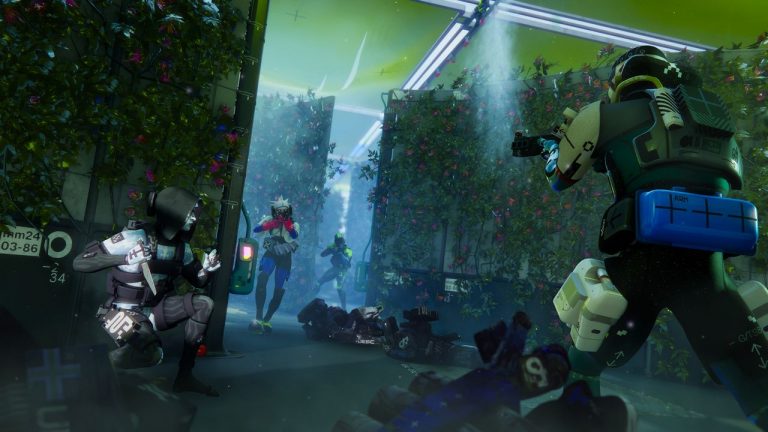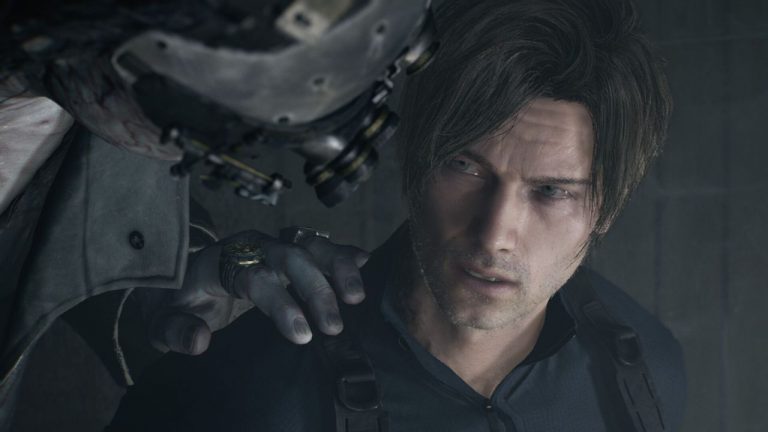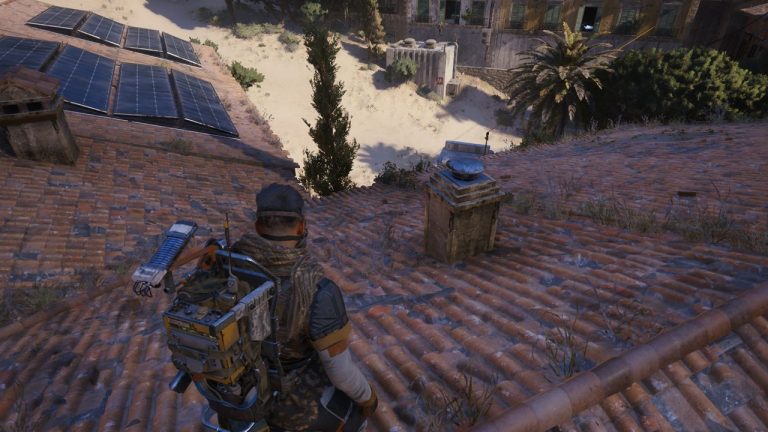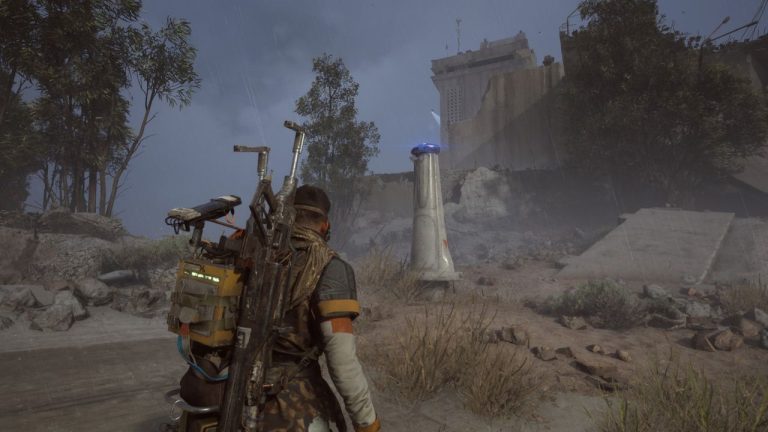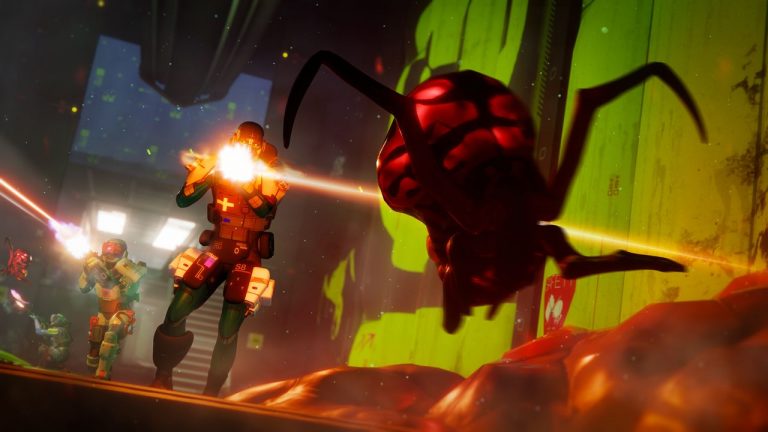Warhammer fans, prepare to embark on a spine-tingling odyssey through the chaotic realms of betrayal, loyalty, and galactic warfare with the Horus Heresy series—a pivotal storyline in the expansive Warhammer 40K universe. Navigating this epic anthology can seem as daunting as a gauntlet thrown by the Chaos Gods themselves. For both neophytes delving into their first campaign and seasoned veterans who have weathered many a warp storm, finding where to begin—or indeed, what comes next—can often lead to consternation and confusion.
Fear not, for this comprehensive guide, loyal as a Space Marine to his Primarch, aims to illuminate the path. Understanding the chronological harmony of the Horus Heresy’s narrative is vital for an experience that resonates with the same intensity as a Bolter round. Let us be your navigators through the Warp as we plot a course through the stars, ensuring your forays are as thrilling as a charge from the Adeptus Astartes themselves.
Gear up for your reading crusade as we reveal which tomes to assail first and which to circle back to when the time is right, allowing the full narrative to unfold like the Emperor’s divine will. So hoist your banner high, grab your most trusted bolter, and ready yourself for an unforgettable saga of galactic conquest and celestial treachery.
The Horus Heresy Reading Order Essentials
When plunging into the warp vortex of the Horus Heresy series, the sheer volume of content—including novellas, short stories, and full-length novels—presents both an incredible opportunity and a tactical challenge. The series explores the rich backstory of the Warhammer 40K universe, specifically the titular civil war that forever changes the Imperium of Man. As epic as any battle march, the reading order of the series is essential to fully grasp the grand theater of war and the intricate machinations of its characters.
Imagine attempting to assemble a Legion without a Primarch to guide them; strategy is paramount, and this guide is your Codex Astartes, your meticulous set of directives for approaching the books. The Horus Heresy demands to be read in an order that honors the unfolding of its grand narrative and deepens your understanding with each progressive volume. We’ll guide you through the gauntlet, pointing out not just where to begin, but which paths will lead to the most enriching reading experience.
Starting with “Horus Rising”
The assault begins with “Horus Rising,” the indomitable bulwark at the prow of the Horus Heresy series. Penned by luminary Dan Abnett, this seminal work is where you must take your first step into the Great Crusade. Here, readers are introduced to the Warmaster Horus, a character as complex and multifaceted as the grimdark universe itself. The tale begins in an era of prosperity and hope, a stark contrast to the dark fate we know awaits.
Abnett’s storytelling prowess is like a Master of the Forge crafting a Blade Encarmine; meticulous, artful, and sharp enough to cleave through any obfuscation. He masterfully lays the groundwork for the monumental events to come, allowing readers to march side-by-side with the Sons of Horus. Delving into this narrative headfirst will render you, the reader, as rapt as any acolyte absorbing the first lessons of their creed.
As you embark upon “Horus Rising,” you’ll meet key figures who populate this tragic saga and witness the seeds of betrayal being sown. The power struggles, the brotherhoods, and the hint of darkness creeping at the edge of the Imperium’s bright flame—all is introduced here. Let the epic tale of power, corruption, and shattered ideals begin!
The Foundational Trilogy
Beyond the initial push into the fray that is “Horus Rising,” the opening trilogy forms the bedrock of the Horus Heresy narrative. Without the events of “False Gods” by Graham McNeill, and “Galaxy in Flames” by Ben Counter, one would find themselves as lost as an Astartes scout on a rogue planet. These tomes are where the heresy takes root, where loyalties are tested and the galaxy is set aflame with civil discord.
In “False Gods,” we witness the spiraling fall of Horus and his surrender to the whispered promises of Chaos, setting the stage for the ensuant treachery. By “Galaxy in Flames,” the treachery boils over into outright rebellion, as brother turns against brother in the name of the Warmaster—or the Emperor. Each volume takes you deeper into the mind of the heretic, the loyalist, and the fate of the Imperium at large. Skip these at your peril, for they are as crucial as the power cells in a Combi-plasma.
Each of these opening salvos is essential. They are the triumphs and the tragedies, masterfully shaped by the written word. They are your firmanent, your guide through the tumultuous skies of war and chaos that is to come. To forgo them is to march against the Orks without a Power Fist—unthinkable for those who wish to conquer the series in full.
Delving Deeper: Books 4-10
As with any grand tapestry, the initial threads are critical, but it is the intertwining narratives of the subsequent volumes that enrich the Horus Heresy’s tale of corruption and redemption. “The Flight of the Eisenstein” by James Swallow is the fourth installment, and it ushers us into a new chapter as we follow Death Guard Captain Nathaniel Garro. His perilous journey to warn the Emperor of Horus’s treachery is both bone-shaking and heart-rending, etching the loyalist plight into the very fabric of the story.
This segment introduces us to more primarchs, those demigod sons of the Emperor, each with his own destiny and role to play. From the heights of angelic Fulgrim’s fall in “Fulgrim” by Graham McNeill to the secretive maneuvers of the Dark Angels in “Descent of Angels” by Mitchel Scanlon, the weave of gripping tales grows ever more complex. These books do far more than simply move pieces on the galactic chessboard; they breathe life into the mythology, each chapter a stroke of paint upon a vast and detailed canvas.
The Middle Segment: Unforgettable Twists and Turns
Advancing further into the series, each new book is akin to exploring an uncharted region of the galaxy. “Legion” by Dan Abnett sweeps us into the shadowy workings of the Alpha Legion, while “Battle for the Abyss” by Ben Counter pits Space Marines against their treacherous kin in a titanic struggle. Every novel unveils portions of the greater mosaic, revealing betrayals and alliances that reverberate across the cosmos.
The richness of the Horus Heresy grows with each entry, particularly through the tragic arcs in “A Thousand Sons” by Graham McNeill and “Nemesis” by James Swallow. These are not mere side excursions in the expansive saga; they are the heartbeats of a heresy that thrums with life and decadent decay. The tomes of the middle segment, including “The First Heretic” by Aaron Dembski-Bowden, deepen the labyrinthine plot and must not be skirted lest one misses the full glory and tragedy of the conflict.
Later Volumes: The Road to Terra
The lore-laden journey of the Horus Heresy continues unabated as the betrayed and the betrayers inch closer on the Road to Terra. In later volumes such as “Vulkan Lives” by Nick Kyme and “The Unremembered Empire” by Dan Abnett, layers of narrative unfold like petals of a dark flower in the toxic gardens of Nurgle. Sworn oaths are put to the ultimate test, and the very fate of humanity dangles by a fraying thread.
Books like “Scars” by Chris Wraight and “Vengeful Spirit” by Graham McNeill reinforce the unyielding march toward the Siege of Terra. They contain pivotal events that color the emotional spectrum of the series, from the ruminations of loyalty to the echoes of Chaos. As defeats are snatched from the jaws of victory and pyrrhic triumphs etch themselves into legend, the reader cannot help but become enraptured by the inexorable pull of these tales.
Anthologies and Standalones: Expanding the Heresy
The Horus Heresy brims with more than just the power struggles of primarchs and the grand tactics of Legions. With anthologies like “Tales of Heresy” and standalone narratives such as “Betrayer” by Aaron Dembski-Bowden, one is granted a unique vantage point. These curations and unique tales offer the chance to delve into the human element, the cultural backdrop, and the insidious spread of Chaos far from the frontlines.
These interstitial narratives are integral, serving as both respite and revelation. They deepen the understanding of the Heresy and offer a refuge where insights into character motives and historic nuance can be gleaned. For the studied reader, they are as vital as an Adeptus Mechanicus directive—missives from the front that shape the comprehension of the larger war.
Nearing the End: Critical Lead-Up to the Climax
As the Horus Heresy approaches its cataclysmic climax, the narratorial drums beat with a frantic rhythm. From “Ruinstorm” by David Annandale through to “Slaves to Darkness” by John French, the stage is set for the final cataclysmic confrontations. Heroic deeds are etched in the annals of time, and the price of ambition becomes devastatingly clear as characters beloved and reviled meet their innate destinies.
Anticipation builds with every turn of the page. The legions gather, the Primarchs steel themselves, and the treacheries of the Warp breed further discord. This stretch of the journey leaves no room for deviation, no trail untread, for the warp storm of “The Burden of Loyalty” and the titanic clash of “Titandeath” are seminal.
The Conclusion: Siege of Terra and Beyond
The inexorable march concludes with “The Buried Dagger” by James Swallow, where all threads converge and lead to the ultimate End Times—the Siege of Terra. Heartstrings are pulled taut, the very nature of heroism and villainy is questioned, and one cannot help but feel wistful for the splendid corruption of the Imperium we’ve witnessed along this interstellar journey.
For those valiant enough to have traversed the Horus Heresy thus far, it marks neither the end nor respite, for beyond lies the “Siege of Terra” series—a look into the final stand of the Emperor and his loyalists. As one chapter of galactic history closes, another begins, and the champions of the Warhammer 40K universe continue their eternal war—a saga readers are now fully equipped to appreciate and explore.
Complete Horus Heresy Book Order
Here’s the complete list of all the Horus Heresy books in the Warhammer 40k Universe!
Horus Rising by Dan Abnett
False Gods by Graham McNeill
Galaxy in Flames by Ben Counter
The Flight of the Eisenstein by James Swallow
Fulgrim by Graham McNeill
Descent of Angels by Mitchel Scanlon
Legion by Dan Abnett
Battle for the Abyss by Ben Counter
Mechanicum by Graham McNeill
Tales of Heresy
Fallen Angels by Mike Lee
A Thousand Sons by Graham McNeill
Nemesis by James Swallow
The First Heretic by Aaron Dembski-Bowden
Prospero Burns by Dan Abnett
Age of Darkness
The Outcast Dead by Graham McNeill
Deliverance Lost by Gav Thorpe
Know No Fear by Dan Abnett
The Primarchs
Fear to Tread by James Swallow
Shadows of Treachery
Angel Exterminatus by Graham McNeill
Betrayer by Aaron Dembski-Bowden
Mark of Calth
Vulkan Lives by Nick Kyme
The Unremembered Empire by Dan Abnett
Scars by Chris Wraight
Vengeful Spirit by Graham McNeill
The Damnation of Pythos by David Annandale
Legacies of Betrayal
Deathfire by Nick Kyme
War Without End
Pharos by Guy Haley
Eye of Terra
The Path of Heaven by Chris Wraight
The Silent War
Angels of Caliban by Gav Thorpe
Praetorian of Dorn by John French
Corax
The Master of Mankind by Aaron Dembski-Bowden
Garro by James Swallow
Shattered Legions
The Crimson King by Graham McNeill
Tallarn by John French
Ruinstorm by David Annandale
Old Earth by Nick Kyme
The Burden of Loyalty
Wolfsbane by Guy Haley
Born of Flame by Nick Kyme
Slaves to Darkness by John French
Heralds of the Siege
Titandeath by Guy Haley
The Buried Dagger by James Swallow
Charting Your Path Through the Horus Heresy
From “Horus Rising” to “The Buried Dagger,” the Horus Heresy series is a champion’s gauntlet of narrative complexity and mythic scale. A rigorous reading order is the cogitator that unscrambles the vast data of the Heresy, ensuring encounters with each novel resonate with the intended power and place within the series’ grand architecture.
Take heart, for this guide has illumined the path through the Horus Heresy, presenting it not as a labyrinthine challenge but as a crusade worthy of the Adeptus Astartes. Stand confident in the knowledge that as you venture forth, armed with this codex, the Warp’s twisted paths will hold no sway over your journey.
So, undaunted warrior-readers, look upon these bibliographies not as mere lists, but as maps to adventure, to tragedy, to glory. For in the grim darkness of the far future, there is more than war—there is a saga etched in the stars, waiting for those bold enough to explore it. Forge onward, with this guide as your sacred Rosarius, into the annals of the Horus Heresy and the beyond!
The post Horus Heresy Book Order: Essential Warhammer 40K Reading appeared first on LitRPG Reads.

